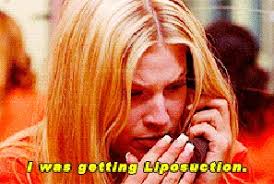Anyone who knows me knows that building and cultivating rapport is my favorite UCWbL core practice because I love to talk to people about literally anything. I think it makes for the most successful appointments and fits well with my career aspirations. Naturally, for the WRD 395 project—a class that all new undergraduate tutors take during their first quarter working at The UCWbL—I chose to examine it as my core practice to connect with my career goals.
Rapport
Rapport is important in any career field, but I found it to line up especially well with my goal of working as a lawyer. When I started looking for sources for the project, I found an abundance of evidence in support of rapport building in law right away. I decided to talk about rapport as it relates to client-attorney relationships, as well as how it can affect a firm’s reputation.
Relationship with Client
Robert Cummings talks about how people like passionate people, and passion can be shown by building rapport with the client (A Lawyer’s Manifesto). He also mentions that the client is the reason for the lawyer’s job, which is similar to The Writing Center’s dynamic—tutors need writers. It is unlikely that an appointment will go well if there is no rapport building at the beginning.
The relationship between a tutor and writer as well as a lawyer and client are similar in that the writer/client is sharing personal information and must feel comfortable with the tutor/layer to share said information. Allison Abbe and Susan Brandon even state that building rapport with the client can motivate them to share more information (Building and Maintaining Rapport). Think Legally Blonde for this example!
Here Elle brings Brooke Cosmo, and only then does Brooke share her alibi, where she admits….
 As Elle demonstrates in this iconic scene, it is important when building rapport to be genuine instead of just going through the motions. Margaret Hogan endorses this by arguing that a true partnership is necessary and just “having someone on speed dial” won’t do (Less Is Not Always More).
As Elle demonstrates in this iconic scene, it is important when building rapport to be genuine instead of just going through the motions. Margaret Hogan endorses this by arguing that a true partnership is necessary and just “having someone on speed dial” won’t do (Less Is Not Always More).
Reputation
As for the reputation of the firm, any reputation is based on clients’ personal experiences. Jennifer Spellman and Jeannea Varricchio talk about how the lawyers’ most important task is maintaining a firm’s reputation (Bad Reputation). You may be wondering how this has anything to do with rapport, but it has everything to do with rapport! Good reputations are built from constructive experiences which are usually caused by effective rapport building and positive interactions between people.
Conclusion
My sources mostly reaffirmed the ideas I had going into this project, but I came out it with a more thorough idea of how important rapport really is in law as well as in tutoring. The sources I chose were interesting because they weren’t necessarily based on any specific research, but more on general personal experience in the law field. All of my sources came from law journals that included advice for lawyers.
What Can WE Do?
In the future, I will place even more importance on building rapport with my writers as well as when I start working in my career field. As tutors, we can’t undermine how important connections and relationships with people are to both their and our own success.


